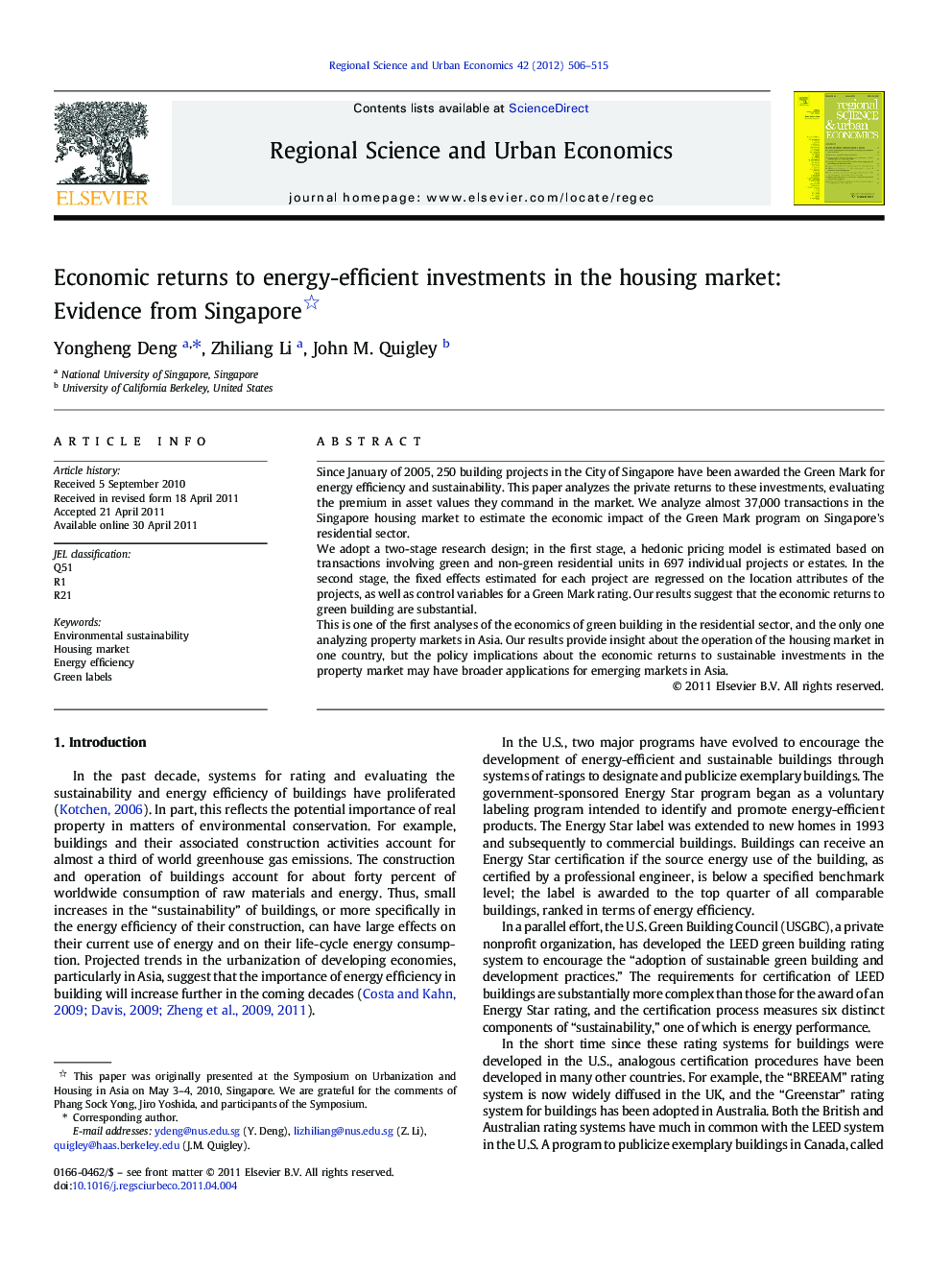| Article ID | Journal | Published Year | Pages | File Type |
|---|---|---|---|---|
| 983763 | Regional Science and Urban Economics | 2012 | 10 Pages |
Since January of 2005, 250 building projects in the City of Singapore have been awarded the Green Mark for energy efficiency and sustainability. This paper analyzes the private returns to these investments, evaluating the premium in asset values they command in the market. We analyze almost 37,000 transactions in the Singapore housing market to estimate the economic impact of the Green Mark program on Singapore's residential sector.We adopt a two-stage research design; in the first stage, a hedonic pricing model is estimated based on transactions involving green and non-green residential units in 697 individual projects or estates. In the second stage, the fixed effects estimated for each project are regressed on the location attributes of the projects, as well as control variables for a Green Mark rating. Our results suggest that the economic returns to green building are substantial.This is one of the first analyses of the economics of green building in the residential sector, and the only one analyzing property markets in Asia. Our results provide insight about the operation of the housing market in one country, but the policy implications about the economic returns to sustainable investments in the property market may have broader applications for emerging markets in Asia.
